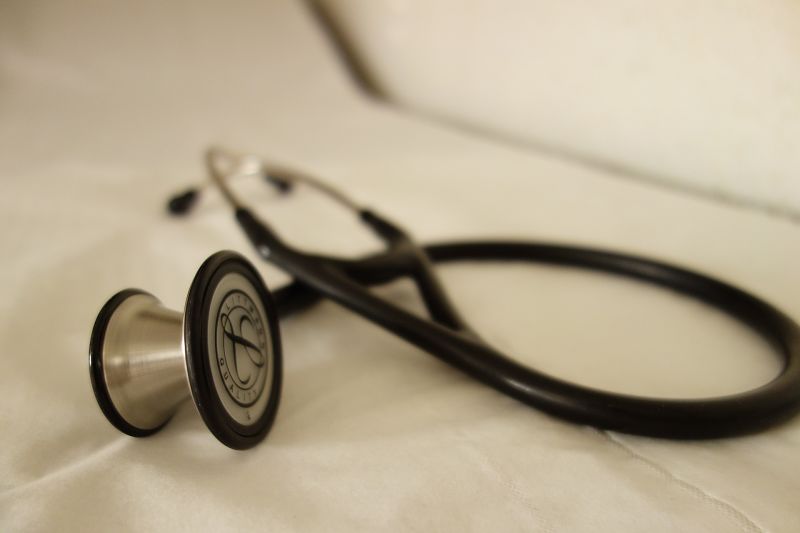Traditional vs. Functional Medicine
I recently saw my integrative medical doctor, also called a functional doctor, and many of you reached out asking to know more about the experience, thus an entire blog post on integrative medicine.
You are likely used to a traditional doctor. This is the person you wait twenty minutes to see in the waiting room, an additional ten minutes in the examination room, and then get a rushed seven minutes to explain your symptoms, get a diagnosis, and a treatment.
The seven minutes isn’t even a guess. In a book by Lissa Rankin, M.D., Mind Over Medicine, she indicates that she literally was given only seven minutes to see her patients.1
When there is a disproportionate amount of time between waiting and time with the doctor, something is wrong.
I liked my traditional doc until I had a chronic illness, mostly because I never was able to see him. They could never fit me in, so, on one occasion, I ended up seeing his colleague.
I was in the worst pain of my life, so uncomfortable all the time, and when I asked what to do if the tests indicated I did not have a bladder infection, she said she wasn’t sure.
I asked if I could have Interstitial Cystitis, to which she responded, “that is a chronic condition, so no, I don’t think that’s possible”. I had to tell her to refer me to a urologist, because I wasn’t willing to just take “I don’t know” as an answer to my pain.
You’re likely well aware that if you have a chronic illness, you will have to be your own advocate. It’s why people like me exist who want to help you through everything we had to figure out on our own.
Doctors, while well meaning, know very little about illnesses like ours, and let’s be honest, many of them don’t even believe our illnesses are real.
One of my mom’s best friends had undiagnosed IC for 15 years. She would go to the doctor with visible blood in her urine and they told her it was nerves and to just calm down.
This is not OK. While I believe doctors want to help us, and many are well meaning, most do not have the kind of training that is going to help you get to optimal health.
Enter functional medicine.
There are varying thoughts on this. There are “alternative doctors”, but be careful here. The difference between an online class on nutrition and five years of schooling in alternative medicine can be very difficult to decipher.
I was to the point where I wanted to go to someone I knew had the proper background to help me. Integrative doctors generally have a medical degree, but have started doing functional medicine after classes and conferences and an extensive amount of study.
This makes me comfortable, as they already understand the body, but can now apply a different approach. However, someone who has had years of schooling in alternative medicine would be a great person to see as well.
I decided I would rather see a doctor who also was trained in traditional medicine, but this is a personal choice for anyone considering taking a less traditional path.
My own doctor was previously a family physician. As he explained it to me, he had a limited toolbox for what he could offer his patients.
Eventually he started them on nutritional supplements and/or vitamins, but some would get better, and some would not. He couldn’t figure out why, until he considered that all our bodies are different and our needs are different and we need to look at the big picture of how a body is working and functioning. A particular symptom can present itself from a host of potential causes and breakdowns in the body.
IFM.com defines functional medicine as, “ a systems biology–based approach that focuses on identifying and addressing the root cause of disease.”
My doctor and I have worked together for over two years now, trying to identify the root cause of the whole bladder breakdown.
The first appointment had me sold, as he spent an entire hour interviewing me and discussing my health history. He examined me, making sure I didn’t have any mercury fillings, and doing all the ordinary things doctors do as well (blood pressure, heart rate, etc.).
Another thing I love about my particular doctor: he doesn’t discount the impact of our emotional and spiritual health on our physical health. In the notes for treatment at my most recent appointment, he wrote, “peace, joy, prayer, breathe”. This was written next to lifestyle modifications and nutritional and herbal supports recommended.
If you have been around this blog much at all, you know how much I value the non-physical side of healing and how I believe it absolutely impacts our physical well-being, so finding a doctor who also sees its value was groundbreaking.
What to expect:
If your doctor is anything like mine, your first appointment will be a lengthy interview where he/she investigates all potential causes of your symptoms, or, if you are healthy, he will simply review your family health history and investigate your history as well.
He or she will send you on your way with a list of labs to be collected.
The lab I go to, AnyLabTestsNow, does not require a doctor’s note to request ANY blood test. However, he fills out a checklist of the things he wants to look at for me.
* Note of Caution: Don’t be an idiot like me and randomly add a handful of other tests, because you’re a hypochondriac. The last time I did that the woman took close to 10 vials of blood. I thought she was going to drain all life. It was the closest I have ever come to passing out while getting my blood drawn.
Anyway, if there is something you are curious about, head into one of these labs – you don’t need a doctor’s approval. And you shouldn’t – it is your body after all.
Results of the blood tests would be sent to my doctor to discuss at our next appointment.
There was another test I had to complete, which I hesitate to share, because it’s pretty gross, but hey, I run a blog based on talking all about my bladder, so what do I have to hide, right?
The doc sent me on my way with a doodie collection kit. I had to collect a sample of my poo and mix it into this magic solution, seal it up, and then send it through the mail.
Setting my own shit out onto my porch for the UPS guy to pick up was one of the weirdest things I’d ever done. It felt like I was pranking him. I wonder how many absolutely disgusting things are carried around by these poor people.
After test results were in, I came back for another appointment.
This next part, the part I think is most helpful, he or she will come up with a plan for you. My doctor explained it like this, “if we can find all of the levels which are off in your body, fixing one may make you 5% better. Fixing another may do the same, or not, but eventually, if we get your body working like it should and feeding it like you should, then the goal is complete symptom reduction”.
I don’t want to get too crazy, but friends, I have watched multiple accounts of people reversing “chronic” conditions through this type of medicine.
It meant completely changing my diet and trying this thing called an “elimination diet”. I’ve written about that here.
It also meant exercise and taking the supplements my doctor recommended. I have listed some of the supplements I take in this article, but I take many more.
I don’t think it would be helpful for me to list all of them, though, as the whole idea of functional medicine is looking at your own body and how it is functioning as a whole. If there were a prescribed set of supplements to help everyone, traditional medicine would actually work all the time.
I’d like to add that I really do still respect traditional medical doctors. It’s easy for us to be critical, as we learn more about the body, but I know most of them are at least 30 IQ points smarter than myself and save lives every day.
I’m thankful for what they do, but I’m also thankful I found a doctor who is willing to go on a deeper health journey with me, and I think it’s worth sharing about.
It’s possible the most helpful factor to my recovery has been that I had someone who cared. Lissa Rankin mentions the power of having a physician simply tell you they are going to help you.
Up until I saw my functional doctor, I had only been given, “well maybe’s” and then sent on my way.
No-one cared enough to spend the time to invest in my care until the doctor I see now. It’s quite possible his caring and his determination to execute a plan with me were in and of themselves what helped me so much.
Since that first appointment a couple years ago, I went from 80% well to about 98% well. I still have mini flares, but for the most part I feel great. He has also helped me with other issues, I may eventually share, but what I hoped to communicate today is if you haven’t tried this alternative route to wellness, I highly suggest it.
Be careful who you choose. Make sure the doctor you are seeing has a substantial education and didn’t just receive their certificate after a 6 week online course.
You don’t want to waste your time or money with someone who isn’t going to actually help you (let’s be honest – you’ve already been doing that).
I’m not going to pretend my doctor has magic beans which will miraculously heal you. It’s a process. It also takes a great deal of work from you. It means changing many aspects of your lifestyle, but if you are anything like me, my health was absolutely worth the changes required.
References:
1 Rankin, L. (2015). Mind over medicine: Scientific proof that you can heal yourself. Brighton-Le-Sands, NSW: Hay House Australia Pty.


Bless you, girl! So thankful for hearts like yours – willing to share your journey! Blessings toward that last 2%!!! ❤️
Thanks so much, Crystal!